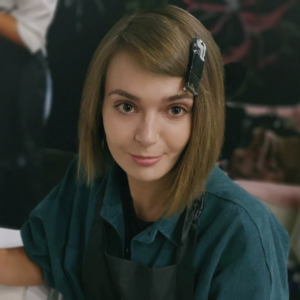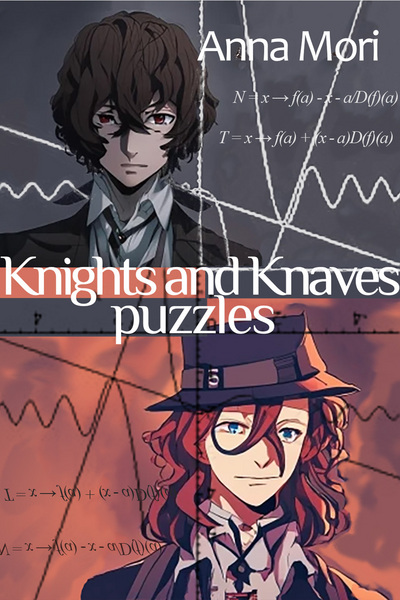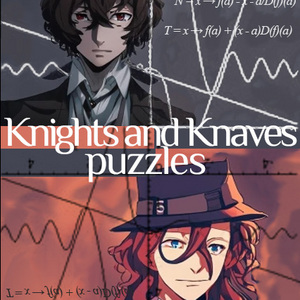Dazai
Back at Heathrow, I had excused myself to the restroom and, with a pen, inscribed upon my forearm, near the crook of my elbow: "221."
At the time, it felt like an excess of caution, a measure bordering on paranoia, as superfluous as everything else I'd scribbled onto that slip of paper for Chuuya. Mori had always been meticulous in drilling into me the necessity of contingency plans — redundancies upon redundancies, escape routes branching out like the mycelial threads of some vast, unseen organism. Yet I had been so certain. We would dispose of Joanne and her cult swiftly, surgically, without complication. More often than not, Plan B proved redundant; enemies tended to be significantly duller than one might anticipate.
I was fortunate to have erred on the side of prudence.
The three days that followed Chuuya’s rather theatrical exit — crashing through the ceiling of that sanctimonious little charade — were... peculiar.
To put it delicately.
I floundered in an ocean of paranoiac conjectures, clawing at stray threads, each one fraying in my grasp, ensnaring myself further in a web of uncertainty. Every night, I fell asleep convinced that revelation — swift, merciless — was imminent. That I would wake to find my mind already rewritten, my memories siphoned away without ceremony, no altars, no incantations, only a void where my sense of self had once been.
I had always relied on my intellect above all else — trusted it as one trusts the ground beneath their feet. The mere notion that my thoughts might be compromised, my reasoning no longer my own, was a terror more profound than the prospect of a summary execution. Each morning, upon waking, my first act was to seek out the inked "221" on my arm — to reaffirm that I still recognized myself, still remembered why I was here. Each night, I traced over the fading numerals, ensuring they would remain come dawn.
221B. Baker Street. Chuuya. I am still, for now, myself.
The days passed within an establishment called Avalon. It was a halfway house for children recently subjected to their operation — the excision of all that made them extraordinary. A sanctuary, if one were to adopt their euphemistic parlance, or an orphanage, to put it bluntly, for those now tasked with learning how to exist as mere mortals. Joanne had brought me there on the very day of my arrival.
"There is something I would like to show you," she had said.
Ordinary tourists, upon arriving in London, are typically shepherded toward Westminster or the Tower. My own first sightseeing destination had been an orphanage for maimed children. Not physically maimed, of course. Which, in some ways, was worse.
The car carried Joanne, her son, Wilde-san, and several guards through the rain-slick streets toward Whitechapel. The journey was long, it was raining in an unbroken, insistent cadence. Water sheeted down the windows, distorting the world outside into vague, wraithlike smears of light, as though we were sinking into the depths of some river.
I had turned to Joanne and asked,
"Is it truly wise to keep such children together? Some have lost not only their abilities, but their memories as well. Being in close proximity to those who remember could trigger recollections, could it not? And then you would have a problem on your hands.”
"Those with families to return to, naturally, are sent home. But not all are so fortunate," Joanne had replied evenly. "Those who remember are forbidden to speak of it. Some truths, I am sure, seep through, but hardly more than the usual childhood flights of fancy. And in any case — what choice do I have? At least when they are gathered in one place, they can be supervised."
"Would it not be more prudent," I had pressed, "to teach them how to wield their abilities safely? To ensure that they pose no threat — to themselves or to others?"
"What you are suggesting," she had countered, "amounts to training them to harm others in a controlled manner. Turning children into weapons. And, I cannot help but ask: for whose benefit?"
"Well, as the principle goes, that which brings the greatest good to the greatest number—"
"Ah, dull utilitarianism? How tedious. I expected more from you, Mr. Ikita. You do not strike me as a man preoccupied with the common good."
"Fine," I had relented. "For your benefit, then. You could employ them just as you do the Brontë sisters and Wilde-san."
"Ah, so we return to weapons," she had mused, lips curving slightly. "You have, in essence, just advocated for a superpowered Hitler Youth."
"I wasn't talking about myself, and that is not—"
"No need to protest. I never said I found the notion immoral."
She had paused, then added, "I will tell you why I do not pursue such a course. First: some of them are irredeemably ungovernable. Only recently, I gave my blessing to a six-year-old girl. A pyrokinetic. Unable to master her gift, she incinerated her family, their home... and ten neighboring houses besides. Her mind was an unrelenting wail of anguish. She was utterly beyond control."
I had imagined, then, Chuuya — without me, left to his own devices, unfettered. A force of obliteration, entropy given form, capable of razing the world itself to ruin. And that was not hyperbole.
"With sufficient patience, anyone can be molded to serve a purpose," I had observed. "Pairs could be formed — individuals of equal strength or counterbalancing abilities, trained together—"
"You continue to intrigue me, Mr. Ikita," Joanne had murmured, though her tone betrayed not surprise, but amusement. "By ‘together,’ do you mean against one another? Encouraging them to battle? To scorch and electrocute each other in controlled skirmishes? That is hardly humane. To put it mildly. Have you, perchance, heard of the Milgram experiment?"
"Yes," I had replied — perhaps a touch too curtly.
I am ten years old, and Mori speaks to a red-haired boy I have never seen before, standing across from me:
"Go on, use your gift. Don’t be afraid, he can take it."
Mori often uses me as a living target for his subordinates' training. People are usually reluctant to use their abilities on me — especially those who are seeing me for the first time. Some offer timid protests, but, of course, Mori never allows them to stop. It is amusing to watch them waver, to see their hands tremble, their faces pale, their foreheads sheen with sweat — only for them to obey in the end.
Mori, without a doubt, is right in one thing: practice is indispensable for mastering one's abilities. There is no cruelty in this — after all, no ability can harm me… not directly, at least. Though there are certain side effects — burns from smoldering fabric, for example.
But this boy has never seen me before, and he has no idea how No Longer Human works.
He is small and doll-like, with eyes as unnaturally blue as wildflowers. He studies me for a long time and, judging by the grim and almost feral set of his expression, arrives at a carefully weighed conclusion: I don’t like you.
I brace myself for a blow that will hardly do me any harm — but something entirely unexpected happens instead. He moves with startling agility, seizing me by the waist, and suddenly, the ground is no longer beneath my feet. I am weightless, upside down. I bite the inside of my cheek to keep from yelping — the sensation of the flight is eerie and stupid, my hair hanging absurdly towards the floor — and though I try to banish the thought, exhilarating.
I dangle there, mere inches from the ceiling, and the red-haired stranger, hanging upside down as well, keeps a firm hold on me, clearly delighted by my startled expression.
"Nakahara," says Mori. His tone sends a familiar chill down my spine — the kind that always makes me wonder what punishment awaits me this time. "If you are unwilling to use your power, then you have no place in the Mafia."
The boy rights himself effortlessly, lowering us both, setting me down with surprising care — like a fragile toy. He tilts his chin up.
"Oh yeah? Do I usually look unwilling? Am I doing a bad job?"
We all know perfectly well what Mori wanted from him. But, technically speaking, the boy did use his ability. And if Mori were to argue the point now, he would only make a fool of himself.
"Usually, you do well. This time, you disappointed me."
"Guess I’ll go cry about it."
"Save the insolence for Kouyou," Mori replies, voice cold as ice.
The thought that this red-haired boy — barely larger than a house cat — took pity on me sparks a cascade of emotions, none of them pleasant.
Half an hour later, the flying boy named Chuuya Nakahara and I are successfully pummeling each other into the dirt, with no abilities involved.
A few years down the line, our fights acquire… additional elements. The kind of elements one would not consider appropriate for public display, if you catch my meaning.
Around that time, Mori assumes full and absolute power over the Mafia. And even Chuuya finds it harder to resist him — so what hope do I have?
Through all these years, Mori never tires of explaining to me (or, more often, demonstrating) how flimsy all ethical constructs are, how fragile the thin veneer of civilization and morality covering the savagery and malice of mankind. He spares no effort in proving to me that there is no such thing as a good person — and, of course, he tells me all about the Milgram experiment.
…I was long past ten years old when Joanne looked at me with those cold, fish-like eyes and smiled faintly.
"And secondly," she said, "what you’re describing — a training camp — would make sense if I were some cartoonish villain plotting world domination with an army of superpowered children. But I have no such ambitions. My aims are simple, honest. I do precisely what I say — I offer salvation to lost souls. I heal those who are suffering, as well as those who inflict suffering on others."
She paused, tilting her head slightly.
"Sometimes, as you may have noticed, my rhetoric can be… exaggerated. A touch too much about sin, filth, and damnation, wouldn’t you say? But that’s because people grasp ideas better when they are amplified. And, surprisingly enough, I truly do consider the greater good… even a bit of humanity. I make no pretense of being an angel — sometimes, harsh measures are required, as they will be in the case of Mr. Nakahara. But surely, you of all people understand that noble goals sometimes demand ruthless means."
The rest of the drive to Avalon passed in silence.
That was the first time I thought: this woman was intelligent, unsettlingly like me, and perhaps I had underestimated her.
Avalon turned out to be a beautiful old building, dark brick entwined with ivy. Inside — orderly, clean.
To be honest, I had expected something grimmer — sacrificial altars fashioned from gutted dolls, streaks of blood on shattered bathroom tiles. Something akin to the cliché orphanage in a bad horror film… or my own childhood, which was no more picturesque.
By my estimation, no more than fifteen or twenty people lived in the facility. Most of them were children. And I mean truly children, unlike Anne Brontë (or Atsushi), — six, maybe eight years old at most. Inconceivably small. And already — irreparably broken. Though Joanne, I imagine, would have preferred to call them healed.
Then again, over the following days, I found myself increasingly uncertain of the difference.
The children were not pleased to see me. Some watched in wary silence, their gazes sharp and distrustful like sullen wolf cubs. Others expressed their discontent aloud:
"Who the hell is this guy?"
"When is Miss Avenger coming back?"
By merely stepping into this space, I had disrupted the order of their world — their hierarchy. Joanne did not introduce me. Instead, she stood there, watching with a faint smile, waiting to see how I would handle myself.
The key was to capture their interest with something peculiar. I made no move until a girl, her tone demanding, marched up to me and asked:
"Who are you? Why are you just standing there?
"I’m a vampire," I informed her.
"What?.."
"I cannot cross the threshold of one’s personal space unless invited," I added with a smile.
Some of the older kids smirked. A few even snorted. The younger ones did not grasp the joke, but the hostility had already begun to shift into curiosity.
"You think you're so damn funny?" a boy of about sixteen said with open hostility.
"It is not my only virtue," I replied amicably.
The boy spat demonstratively onto the floor and muttered through clenched teeth:
"Fuck off."
The children held their breath.
"Pardon me?" I said gently.
"I said, fuck..." he started again.
"And the rest?"
He hesitated, a flicker of uncertainty crossing his face. Never try this trick on a child whose confidence is barely greater than that of a loaf of bread. Or on those for whom cursing is not a performance of bravado but a native tongue — Chuuya, for example, would have repeated it without hesitation and added… much more (I hid my smile).
"…Off," he mumbled, now slightly less certain.
"Once more? I didn’t quite catch that."
"Fuck..." he began, but then faltered, his cheeks reddening as he finally grasped how ridiculous he must look. A few muffled chuckles sounded from the others.
"Swearing will not make you more confident if confidence isn’t there to begin with. That’s something you might want to work on," I said, still as politely as ever.
The laughter grew.
"I see we have some troubled youths here," I remarked to Joanne.
"And how. That particular boy had possessed a gift — one you might have considered highly useful for your little Hitler Youth... Apologies, that joke does leave an unpleasant aftertaste. In any case, the boy could impose his will upon others. Not for long — something akin to a stupor — but long enough for his purposes. Do you want to know how many people he robbed and how many girls he raped before I purified him?"
"No, thanks. But it’s not the ability’s fault."
"Of course not. A venomous snake is not to blame for its fangs, yet it is the fangs that are pulled. Stripped of his power — and of the repulsive memories of what he had done with it — he had become significantly less dangerous to those around him. You must admit, it is the most merciful method of correction: he is neither in prison nor tormented by guilt or nightmares. He remains an unpleasant boy, certainly, but perhaps now he has a chance of becoming something better... This place housed both those whose abilities had been a personal hell in which they simmer and those whose abilities had been hell for others. You could, if you wished, read the case files of all these children — and not only children. Or consult the internet, should you suspect me of lying or distorting the truth."
"I do not think you are lying. And I understand why you wanted me to see these children. What I don’t understand is why you feel the need to convince me of anything at all. I never said I disagreed with your Church’s principles."
"Good, if that is the case, Mister Ikita," Joanne said. "That is very good…"











Comments (0)
See all